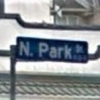Methinks Victoria's official seal should show a buck being passed around, and include the Latin for "you didn't experience what you thought you experienced"
Something like:
non credo, tua experientia
Note the longstanding contradiction between the authorities who claim crime is mostly imaginary, and weary citizens who admit they don't bother involving the police even for fairly serious things. If crime occurs and frustrated victims/witnesses don't bother to report it, did the crime actually happen? (if a tree falls in the forest...)
I'd suggest the notions about supposed "zones" have also not been productive. The whirlwind is being reaped today.
Times-Colonist
Jan 28, 2015
Social problems, not crime, top concerns
While cases of open drug-dealing near her Johnson Street store have dropped significantly in the last five years, Rosebud Seads still ranks drugs as the top issue affecting her business...
Bob Louie, who owns several commercial properties on Government Street, including the building that houses Murchie's, said panhandling and homelessness have pushed patrons away from downtown and to the big box stores in Uptown Centre.
Their experiences back up the findings of a Victoria police survey: business owners' biggest concerns are social issues, rather than crime.
Homelessness was a major concern for 75 per cent of the 136 business owners surveyed, followed by drugs and panhandling (71 per cent), mental health (52 per cent), break-and-enters (32 per cent) and loitering (29 per cent).
...Victoria Police Chief Frank Elsner pointed out that only two of the concerns -- drugs and break-ins -- are crimes. The rest "are not criminal offences," he said. "Those are not something we can put a law-enforcement lens on."
He said police officers need to work closely with social agencies to ensure there's a partnership in dealing with social disorder in a way that helps those who are marginalized as well as business owners.
Victoria Mayor Lisa Helps said she shares many of Elsner's concerns. She suggested a task force on policing and mental health could help...
"It's got to be Island Health, the police, the municipality and others coming to the table," Helps said. "I think we definitely need to make sure that police aren't continually the first responders for people who are experiencing mental illnesses and addictions, because it's not good for the police, it's not good for the taxpayer, and it's not good for the people who have those challenges."
More than half of the survey respondents felt that crime had either decreased or stayed the same, which is in line with local and national trends that crime is steadily decreasing. At the same time, 62 per cent said they had been the victim of a crime in the past five years. Elsner said that doesn't reflect Victoria police's crime statistics and suggested some people might have the perception they have been victimized after a scary encounter.
--
Times-Colonist
July 21, 2013
Downtown seen as safe, but less exciting: survey
Downtown Victoria is seen as being safer at night but perhaps not as exciting as it was three years ago, according to a recent Ipsos Reid survey.
Sixty-four per cent of citizens surveyed by Ipsos Reid on behalf of the city agreed that the downtown core is safe at night, compared with 58 per cent in 2010, when the last survey was conducted.
But only 60 per cent of residents polled said the downtown is vibrant and exciting in the evening, down from 64 per cent in 2010.
While the majority of people living in Victoria feel safe and welcome in their neighbourhoods, about 18 per cent of those surveyed reported not feeling safe walking alone in their neighbourhood in the evening...
Ipsos Reid said citizens' ratings of their quality of life is encouraging. A vast majority of respondents (97 per cent) believed the quality of life is good or very good.
When asked how the quality of life has changed over the past three years, two-thirds said it has stayed about the same. A sizable minority (20 per cent) said their quality of life may have deteriorated slightly, while 12 per cent said it may have improved.
And some feel they are not being listened to. Sixty per cent of those surveyed said the city welcomes citizens in decision-making (down from 73 per cent in 2010) and 55 per cent said the city listens to citizens (down from 69 per cent in 2010).
By comparison, 48 per cent of businesses said the city listens to businesses.
"Businesses tend to be slightly more critical than citizens in a number of different areas, including perceptions of downtown Victoria and city operations, overall satisfaction with municipal services and value for municipal tax dollars," the report says. Residents and businesses are generally aligned in terms of what they see as important municipal issues, with social and transportation-related issues identified as the top concerns for both groups.
However, residents prefer tax increases over service cuts, while businesses prefer service cuts rather than tax increases.
The key social issue identified was homelessness, followed by affordable housing.
--
Victoria News
Jan 15, 2011
Victoria residents a happy lot
Living in Victoria should make you happy. At least, it should, according a new poll commissioned by the city.
Results of the 2010 citizen survey boasts 97 per cent of residents surveyed feel their quality of life is good or very good - and most welcomed tax increases.
The results, by pollster Ipsos Reid, were presented to Victoria city council this week...
Citizens are almost as satisfied with their city services as with life in general. Ninety-two per cent are very or somewhat satisfied with the level and quality of city services.
What's more, a healthy majority of citizens are willing to pay more to either maintain or enhance these services.
While province wide, 55 per cent of respondents to the survey favoured a tax increase, in Victoria the percentage is 64 per cent. A slightly bigger proportion also said they'd like to see the city take a more active role in addressing social issues.
The finding raised concerns with city councillors.
Increased taxes are fine for families with some financial leeway, but Victoria is the poorest jurisdiction in the region, said Coun. Lynn Hunter.
She speculated that most people pinpointed the city as the body most effective in addressing social issues because they consider the provincial and federal governments as abandoning their responsibilities in this area.
(Coun. Philippe) Lucas said he's glad to see the call to address social issues, because police alone can't address this type of crime.
Safety in the downtown marked a notable exception to the general optimism of the survey.
Forty-two per cent of citizens and 61 per cent of business managers disagreed that the downtown is safe at night.
Businesses in general showed less favourable response to satisfaction questions than residents.
Seventy-three per cent strongly or somewhat agree with city rules and regulations. Seven per cent of businesses plan to close or shut down in the next five years. Another seven per cent plan to downsize, and eight per cent plan to relocate outside Victoria.
--
Times-Colonist
March 14, 2008
Victoria is also ranked with the top 10 per cent of American cities for break-and-enter rates.
Victoria police spokesman Sgt. Grant Hamilton estimates the city is hit with about 30 property crimes a day -- 10,000 are investigated a year.
"Everyone's had their car broken into, myself included," Hamilton said.
Benedikt Fischer, a criminologist at the University of Victoria, who also studies addiction and mental health, warns people should take the statistics with a grain of salt, noting great discrepancies in the number of crimes reported in Canadian cities -- for example, a sheltered Victorian might be more likely than a street-savvy Torontonian to report a minor property crime.
(aastra says: I'm not sure there's much logic behind the premise that Victorians aren't particularly street-savvy about... Victoria.)
However, Victoria's crime rate has a much dirtier little secret than rampant drug use, Fischer said. Victoria's growing income gap between rich and poor is another huge problem.
"Even though Victoria might seem nice and quaint," Fischer said, research shows discrepancies in income produce high levels of crime.
"Even though Victoria has a lot of people who are well off and established, and not your typical criminal population, there is a marginalized and disenfranchised population -- a substantial one proportionally -- and that together with a quite sizable drug user and mental health problem population ... obviously generates a lot of property crime," Fischer said.
(aastra summarizes: the criminal victimization you're experiencing isn't as real as you think it is. You're exaggerating it in your mind. However, the crime itself is VERY real, if you frame it in a way that's palatable to contemporary academic political delusions. So the crime is both real and not real at the same time, depending on your politics.)
--
Times-Colonist
May 26, 2003
Red Zone cools off, most feel safe in core
A few months ago crime in the Red Zone -- a one-kilometre-square section downtown traditionally known for drug deals and prostitution -- raised anxiety levels in the capital region.
Now, according to a Times Colonist/CH poll, 71 per cent of Greater Victoria residents say they feel safe in the downtown core.
The poll asked residents if they have avoided travelling downtown in the past 12 months out of concern for their personal safety. Only 21 per cent of respondents said "yes."
"I'm not surprised. I think most people would agree that Victoria is by and large a safe place," said Victoria Police Sgt. Charles Bates.
Although it has been an issue for decades, in the past year the Red Zone has come under renewed focus as merchants voiced frustrations about a list of complaints from prostitution to open- air injection sites.
In recent months there have been wide-ranging efforts among police, health, business and government to seek solutions to the problems.
Victoria's new drug task force, for example, has cracked down on drug dealing with numerous arrests.
"There has been a much more visible presence of the police," said Bates. "There's been a lot more police out looking for traffickers, looking for people selling drugs."
Still, Bates urged people to be aware of the risks downtown and to be careful where they park their cars.
--
Times-Colonist
February 9, 2003
Give our regards to Broad Street Series: The Red Zone
As Stuart Clarke touted the benefits of street revitalization, a greasy-haired young man with khaki pants and a weathered overcoat bolted from his store with $1,000 in merchandise. Clarke had been talking about how improvements to Broad Street had chased away some of the street people from around Robinson's Outdoor Store and neighbouring shops.
Yes, the odd junkie still goes in behind the parking lot across the street to shoot up and there is an old man who regularly sleeps on the sidewalk.
But there is a lot less of that now the sidewalks and street have received a facelift and building owners have spruced up their properties.
Broad Street... cost $2 million to refurbish.
The sidewalks, crosswalks and diagonal parking spaces are done in brick, with other designs in the street concrete.
The city and owners split the cost, with merchants paying their share amortized over 25 years.
Broad Street is only one illustration of the conflict between the desire to revitalize the downtown, particularly the north, and the concern over the area's street issues.
The police and city officials acknowledge problems with addiction and homelessness and have developed a downtown action plan that also involves health officials.
Most say Victoria has one of the safest downtowns in North America. Others say the street population problems are chasing away tourists and shoppers.
Still others suggest it is all about perception.
Clarke and some of his staff easily caught up with the thief, recovering four expensive waterproof jackets. However, they had no interest in holding him for police.
Apart from their major concern being getting the jackets back, they feared that the man could have been violent, perhaps even pulling a dirty needle on them.
And, they said, no one wants to miss a day's work to sit in court only to have the thief get a slap on the wrist.
It is not uncommon to see police cars, a paddy wagon and several bike cops descend on a downtown street corner for a bust. At a recent Greater Victoria Chamber of Commerce meeting on reclaiming the downtown, statistics were presented that suggested there are 70 homeless but as many as 2,000 on the fringes of homelessness.
Many merchants are outraged that attempts to attract new life and investment to the downtown with tax incentives and other lures are hampered by social problems.
The University of Waterloo is completing a study of the success of downtowns in small and medium-sized cities.
The study had several components involving a poll of 250 professional planners...
They were asked to list successful downtowns in their region...
To be considered successful, a city had to be named by at least 20 per cent of respondents. Victoria was named by more than 42 per cent, fifth highest in the successful category.
Halifax and Kingston, the other two Canadian cities that made the successful list, came out ahead of Victoria. Asheville, North Carolina, topped the poll at 52 per cent.
The top factors included having an active retail sector, being pedestrian oriented and being culturally active with solid concentrations of employment.
Other factors considered included parking, green space and residential development. Respondents' comments suggested a positive impact was having a university, hospital and government offices nearby.
Social issues were not a major factor, he said. Respondents made no mention of them in polling in their region or across North America -- except those from Victoria.
"It was only in Victoria the issue of drugs and street people came up,"
And that, say some local observers, is because the city has a perception of itself very different from that of outsiders.
"I think Victorians are very skeptical people," said city planner Doug Koch, who is responsible for downtown.
"They are very hard on themselves but I think that is part of the success because they are critical of themselves and others in order to make improvements."
But he pointed out that the city is taking a compassionate approach to cleaning up the downtown by only cracking down on the drug dealers while offering help to the addicts.
Filion said it may be that police in some U.S. cities simply chase their so-called undesirables out of the downtown core away from view of tourists and local shoppers.
(Third in a series on the "Red Zone," the term used by courts and police for the most troubled parts of Victoria's downtown)
--
The Vancouver Sun
November 28, 1991
Beggars, teens scare shoppers from core
Profane street kids and persistent panhandlers are driving Victoria shoppers away from the downtown area and into suburban malls.
That's the finding of a recent survey of 699 Victoria-area shoppers commissioned by the Victoria Business Improvement Association...
...the survey showed only a third of respondents regularly shop downtown. More than half said they shop at one of Victoria's three out- lying malls - Hillside, Mayfair and Tillicum.
Respondents criticized downtown Victoria for lacking the cleanliness, convenience and free parking of the malls. They also expressed concern for their personal safety in the city core.
Eighty-eight per cent of respondents said increased police presence should be part of any downtown revitalization efforts.
Despite consumer fears, both LeGros and Victoria police Insp. Brian Hayes said few crimes are actually committed against shoppers walking on streets.
But knots of lippy teenagers, rambunctious skateboarders, tenacious beggars and occasional day-shift prostitutes create an unsettling image - especially for seniors
"Some groups of young people pose a perceived threat to older shoppers. They often block sidewalks and shout obscenities."
Occasionally pedestrians are knocked down by "unapologetic" skateboarders...
--
Daily Colonist
March 30, 1960
City Crime "Normal"
Chief Tells Mayor
Under Control Once More
Crime situation in Victoria is back to normal, Police Chief John Blackstock yesterday assured Mayor Percy Scurrah.
"Do you think you've got it under control?" the mayor asked at a police commmission meeting. Chief Blackstock nodded and informed him that all but one of recent break-ins have been solved.
But the police commission didn't think much of storekeepers' part in discouraging burglary.
Storekeepers Criticized
The police chief's report showed 113 premises found insecure in February, and Mayor Scurrah noted, "In spite of the number of break-ins, the number of insecure premises is increasing. How do you impress upon people the need..."
"It's got me beat," said the chief.
"We'll have to have a bylaw with a penalty for leaving premises unlocked," suggested Commissioner Chester Dowman. Commissioner William Hamilton opposed adding to the number of city bylaws, but thought owners should be assessed the cost "of the policement tied up" by insecure premises.
Edited by aastra, 10 January 2021 - 09:13 AM.












